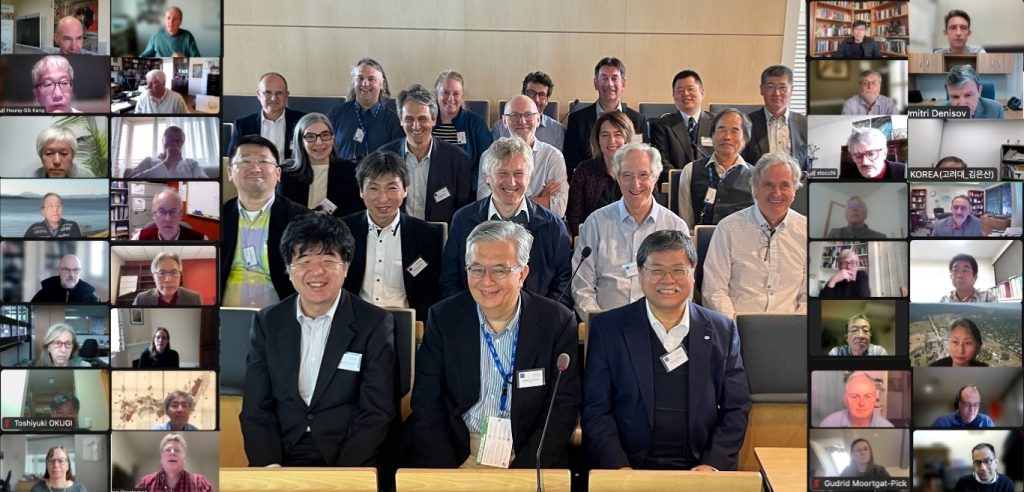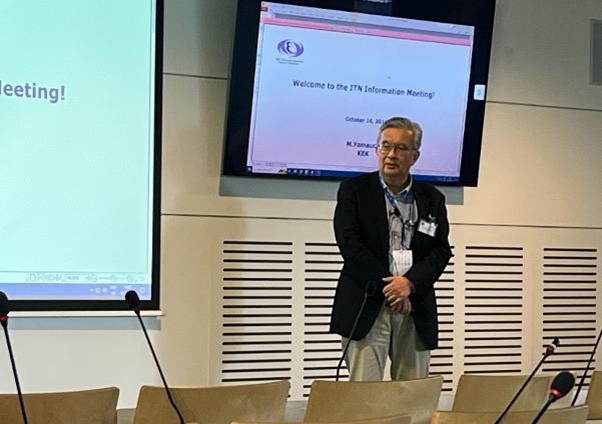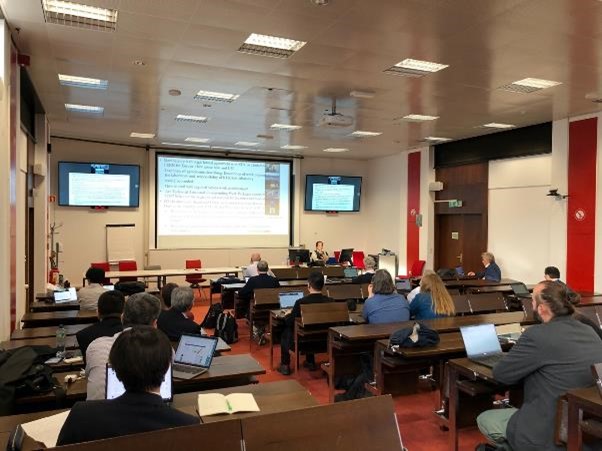
The “ILC Technology Network (ITN) Information Meeting” was held at the European Organization for Nuclear Research (CERN) in Geneva on October 16 and 17, hosted jointly by KEK and the ILC International Development Team (IDT). Sixty-eight participants from 28 research institutes over ten countries participated in the meeting either in person or remotely.
The ITN is a framework for international collaboration to promote high-priority tasks of accelerator development (called “work packages”) for the International Linear Collider (ILC), jointly established by KEK and the IDT. ITN membership is defined through bilateral arrangements between KEK and laboratories. In July of this year, CERN became a member by exchanging an agreement with KEK, which states that CERN will serve as a hub for European research institutions participating in the ITN.
This meeting was held to present the opportunities provided by the ITN and to collect interests of the potential members to achieve its goal. CERN was chosen as the venue to facilitate participation by the European research institutes, which are major players in ITN activities at this moment.

The meeting was opened with an address by KEK Director General Prof. Masanori Yamauchi. To begin discussions, Prof. Shinichiro Michizono, coordinator of the ITN activities, explained the work packages. Then, representatives of each key technology area – superconducting radio frequency (SRF) technology, sources, and nano-beams, – gave presentations to deepen understanding of the current status and prospects. The highlight of the meeting was the presentations given over two days by representatives from 21 research institutes from Americas, Europe, and the Asia-Oceanian region*. Those laboratories that have already started ITN activities presented their progress, while those considering participation presented their areas of expertise and technical areas of interest.

Almost all work packages received expressions of interest from one or more institutes. “We consider it a great achievement that as many as 21 research institutes were present and expressed interest in participating in the ITN, citing specific technical items,” said Prof. Tatsuya Nakata, Chair of the IDT, expressing his expectations for the future progress of the ITN.
*BNL (U.S.), Jefferson Lab (U.S.), Argonne National Laboratory (U.S.), Cornell University (U.S), Fermilab (U.S.), Lawrence Berkeley National Laboratory (U.S.), SLAC (U.S.), TRIUMF (Canada), CERN, INFN (Italy), John Adams’s Laboratory (U.K.), STFC ASTec Laboratory (U.K.), DESY (Germany), CIEMAT (Spain), IFIC (Spain), CEA-Saclay (France), IJCLab (France), Australian Synchrotron (Australia), Korea University (Korea), PAL (Korea), KEK (Japan)
・International Linear Collider: ILC
The International Linear Collider (ILC) is a next-generation particle accelerator that is being developed through international collaboration. The ILC will produce the state of the universe one trillionth of a second after its beginning by colliding electrons and positrons in a superconducting accelerator installed in a 20-kilometer-long underground tunnel. The objective of the ILC is to advance our understanding of nature to a new level by precisely measuring the particles’ reactions and elucidating unknown physical laws. Understanding the nature of the Higgs boson is a crucial matter in particle physics. It was first discovered in 2012 at the LHC accelerator at CERN. The construction of a Higgs Factory has been deemed a crucial priority by scientists worldwide. The Higgs Factory is designed to produce Higgs Bosons at a very high rate, allowing precision studies of the Higgs particle. ILC is expected to be the most mature Higgs Factory project, and KEK is making various efforts toward the realization of the ILC.
・ILC International Development Team: IDT
The International Committee for Future Accelerators (ICFA) has established the International Design Team (IDT), which is an organization of international researchers to promote the transition to the preparatory phase of the ILC.
